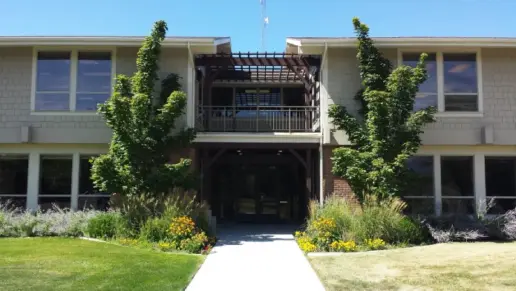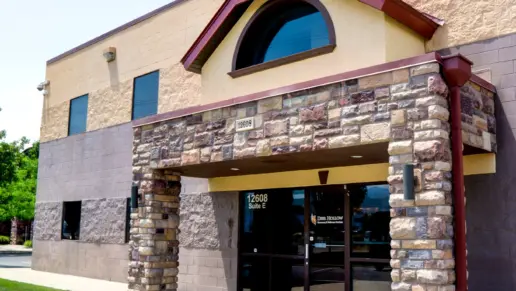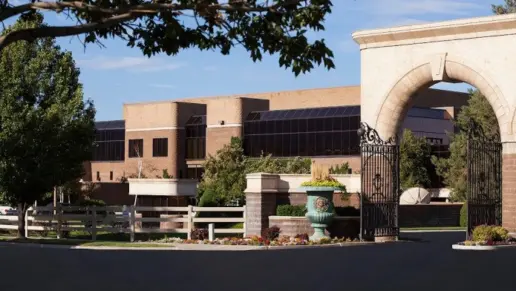Wonderful facility! The staff was very attentive to me all the time; I can't give them enough stars for all what they did with me, from the receptionist to the medical and nurse staff are kind and able to work with anyone who needs their help no matter their needs.
About HMHI Downtown Behavioral Health Clinic
HMHI Downtown Behavioral Health Clinic in Salt Lake City, Utah, provides a range of services to adults, adolescents, and teens who are experiencing behavioral health challenges. They also offer care if you have a dual diagnosis. There are also specialized recovery programs if you are pregnant. They accept policies from most major insurance providers. Speak with your provider because out of network benefits may apply.
There is a rapid access consult clinic at this location. This one time psychiatric assessment will determine if there are any underlying mental health conditions accompanying your substance use struggles. Neuropsychological testing is also available that will help identify any conditions that are often misdiagnosed. This may include diagnoses like ADHD and autism.
When you start your treatment plan, you’ll work with a compassionate, multidisciplinary team of professionals. Your care team will include board certified psychiatrists and triple board practitioners. There are also drug and addiction counselors and therapists. You’ll be supported through age appropriate counseling sessions. There are specialized approaches for children, teens and adults. Counseling is offered in both individual and group settings.
Medication management is available for recovering individuals of all ages. If you are struggling with a substance use disorder, this type of therapy can help you manage ongoing cravings. You’ll work with a psychiatrist to find the right medication regimen.
They offer individual and group counseling that will help you build critical recovery skills as well. Along with identifying triggers that lead to drug use, you’ll learn how to manage stressful thoughts and emotions.
 Payment Options
Payment Options
Self-pay options
Private insurance
Medicare
Medicaid
Military insurance
Military Insurance
 Levels of Care
Levels of Care
 Outpatient
Outpatient
Outpatient Programs (OP) are for those seeking mental rehab or drug rehab, but who also stay at home every night. The main difference between outpatient treatment (OP) and intensive outpatient treatment (IOP) lies in the amount of hours the patient spends at the facility. Most of the time an outpatient program is designed for someone who has completed an inpatient stay and is looking to continue their growth in recovery. Outpatient is not meant to be the starting point, it is commonly referred to as aftercare.
 Programs
Programs
 Adolescence program
Adolescence program
 Adult program
Adult program
 Elderly program
Elderly program
 Program for men
Program for men
 Program for women
Program for women
 Young adult program
Young adult program
 Military program
Military program
 Settings & Amenities
Settings & Amenities
-
Music room
-
Art activities
 Insurance
Insurance
Our Policy: HMHI Downtown Behavioral Health Clinic works with several private insurance providers and also accepts private payments when possible, please contact us to verify your specific insurance provider.











 Treatment
Treatment
 Mental Health
Mental Health
Mental health rehabs focus on helping individuals recover from mental illnesses like bipolar disorder, clinical depression, anxiety disorders, schizophrenia, and more. Mental health professionals at these facilities are trained to understand and treat mental health issues, both in individual and group settings.
 Clinical Services
Clinical Services
 Cognitive Behavioral Therapy
Cognitive Behavioral Therapy
Cognitive Behavioral Therapy (CBT) is a therapy modality that focuses on the relationship between one's thoughts, feelings, and behaviors. It is used to establish and allow for healthy responses to thoughts and feelings (instead of unhealthy responses, like using drugs or alcohol). CBT has been proven effective for recovering addicts of all kinds, and is used to strengthen a patient's own self-awareness and ability to self-regulate. CBT allows individuals to monitor their own emotional state, become more adept at communicating with others, and manage stress without needing to engage in substance abuse.
 Family Therapy
Family Therapy
Research clearly demonstrates that recovery is far more successful and sustainable when loved ones like family members participate in rehab and substance abuse treatment. Genetic factors may be at play when it comes to drug and alcohol addiction, as well as mental health issues. Family dynamics often play a critical role in addiction triggers, and if properly educated, family members can be a strong source of support when it comes to rehabilitation.
 Group Therapy
Group Therapy
Group therapy is any therapeutic work that happens in a group (not one-on-one). There are a number of different group therapy modalities, including support groups, experiential therapy, psycho-education, and more. Group therapy involves treatment as well as processing interaction between group members.
 Individual Therapy
Individual Therapy
In individual therapy, a patient meets one-on-one with a trained psychologist or counselor. Therapy is a pivotal part of effective substance abuse treatment, as it often covers root causes of addiction, including challenges faced by the patient in their social, family, and work/school life.


